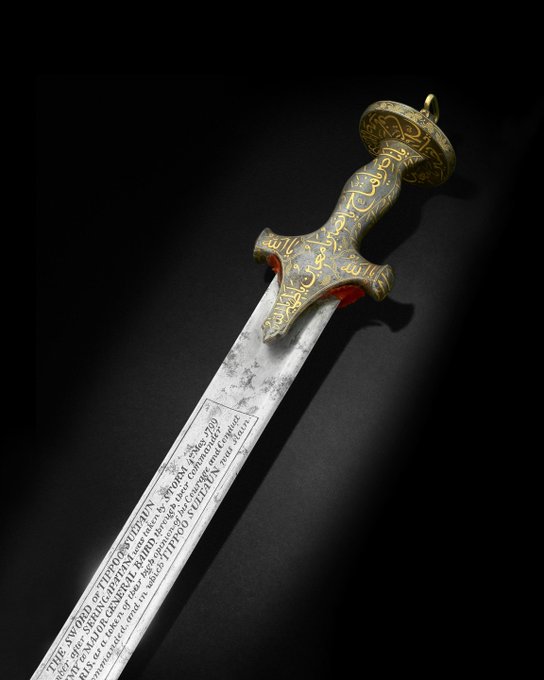The bedchamber sword of Tipu Sultan, the 18th century ruler of Mysuru, sold for INR 140 crore (GBP 14 million pounds or USD 17.4 million) at an auction in London.
Auction house Bonhams, which organised the sale, said the price was seven times the estimate and a new auction world record for an Indian and Islamic object.
It added that the sword was the most important of the weapons with proven personal association with the ruler.
“The sword has an extraordinary history, an astonishing provenance and unrivalled craftsmanship. It was no surprise it was so hotly contested between two phone bidders and a bidder in the room. We are delighted with the result,” Nima Sagharchi, Group Head of Islamic and Indian Art at Bonhams, said.
This sword was one of the weapons removed by British troops from Tipu Sultan’s palace in Seringapatam on May 4, 1799, the press release says, after his defeat. The ‘bedchamber sword’ was found in his private quarters. The blade is inscribed with the words ‘The Sword of the Ruler’.
"This spectacular sword is the greatest of all the weapons linked to Tipu Sultan still in private hands. Its close personal association with the Sultan, its impeccable provenance traceable to the very day it was captured, and the outstanding craftsmanship that went into its manufacture make it unique and highly desirable," said Oliver White, Bonhams Head of Islamic and Indian Art and auctioneer.
Tipu Sultan was given the nickname 'Tiger of Mysore' for the ferocity with which he defended his kingdom. He fought against the Marathas and the British on several occasions till his death in battle in 1799.
He pioneered the use of rocket artillery in wars and transformed Mysore into the most dynamic economy in India, Bonhams said on its website.
The British presented the sword as a trophy to Major General David Baird after the conquest of Mysore, the auction house stated.
Tipu Sultan pioneered the use of rocket artillery in wars both against neighbouring states and also the East India Company of which he was an implacable opponent. His reign was also characterised by the introduction of a new calendar and coinage system and other administrative and financial reforms which built on the work of his father and he transformed Mysore into the most dynamic economy in India.




